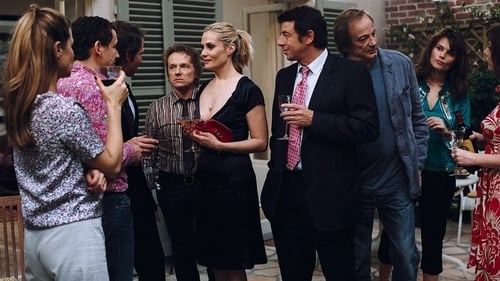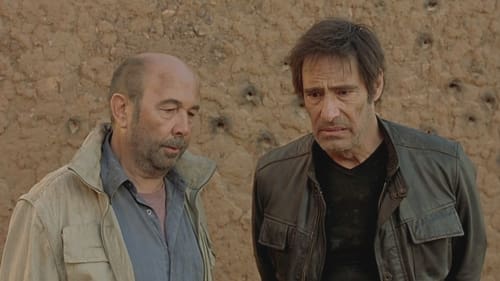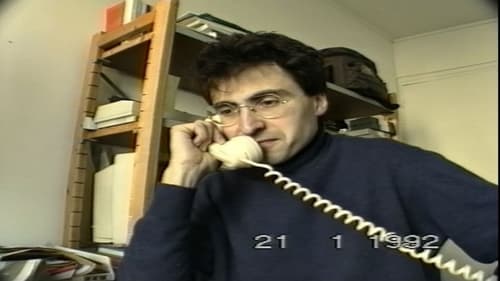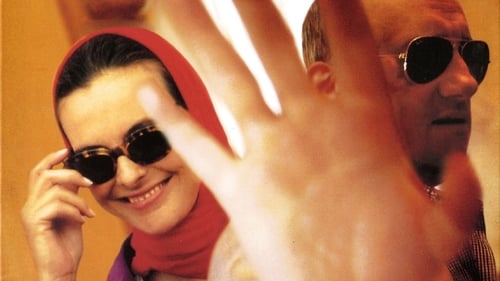Guillaume Durand
Nacimiento : 1952-09-23, Boulogne-Billancourt, Hauts-de-Seine, France

Self
En 1981, Francia eligió un nuevo presidente y soñó con una nueva sociedad. La televisión sufrirá entonces, a lo largo de los años 80, una auténtica revolución. Animadores, productores o directores de retransmisiones cuentan los 10 años que cambiaron la televisión francesa. En 1981 se dio a conocer información, hasta entonces bloqueada con candado. Una mujer llega a los mandos de las 8 p.m. Nacen programas que se han vuelto legendarios, como "RécréA2", "Champs-Elysées", "Droit de respond", "Dimanche Martin", "Le Théâtre de Bouvard", "Les Enfants du rock" o "Cocoricoboy". Pero la revolución lo más llamativo es la llegada de un cuarto canal, Canal, en noviembre de 1984.

Himself
Una noche de verano varios amigos se reúnen para cenar. Cada uno de ellos trata de enmascarar sus problemas personales y pasar una agradable noche de comida, vino y amistad. Sin embargo, las parejas empiezan muy pronto a mostrar su verdadero estado de ánimo, su insatisfacción mutua, y queda de manifiesto que lo que realmente pretenden es vivir una aventura amorosa.

Régis Roche
La R2I, una famosa emisora de radio, envía a Irak a su mejor pareja de reporteros: el periodista Frank y el técnico de sonido Poussin. Millones de espectadores siguen día a día sus reportajes que muestran en vivo la intensidad de los combates y la difícil vida de la población civil. Cuando Frank y Poussin caen en una emboscada, Francia entera se moviliza para conseguir su liberación. Pero el verdadero problema de los periodistas no es el cautiverio precisamente, sino el hecho de que ni siquiera han puesto un pie en Irak, y es que los peligrosos reportajes que los han hecho famosos se emiten desde el multicultural barrio parisino de Barbes.

¿Comunista, anticolonialista, extremista de derechas? ¿Qué convicciones morales tiene Jacques Vergès? Barbet Schroeder nos conduce por los senderos más oscuros de la historia en un intento de iluminar el misterio que se esconde tras esta enigmática figura. Durante la guerra de Argelia, Vergès era un joven abogado que abrazó la causa anticolonialista, defendió a Djamila Bouhired, logró su libertad, se casó con ella y tuvieron dos hijos. De repente, cuando estaba en la cima de su notable carrera, desapareció sin dejar rastro durante ocho años. Cuando retornó de su misteriosa ausencia, se encargó de la defensa de terroristas de todo tipo, desde Magdalena Kopp a Anis Naccache, pasando por Carlos el Chacal, y representó a monstruos de la historia como el teniente nazi Klaus Barbie. (FILMAFFINITY)

Self (archive footage)
"Homosexuality, this painful problem "... It was thirty years ago, the title of a program of Ménie Grégoire! But what has happened since the seventies, when France was transformed and the gay movement emerged? For gays and lesbians, thirty years of fights, hopes and despairs, thirty years of parties, sufferings and mournings, victories and emancipation. Thirty revolutionary years, pink and black, on which Yves Jeuland has examined, in an approach that is at once documentary, historian and ethnographer. First part: "Red years" (1971/1979) "Pink years" (1979/1984) Second part "Black years" (1983/1991) "Rainbow years" (1992/2002)

Self

Self
"Pas vu, pas pris" starts with a subject filmed 2 years ago ; ordered then forbidden to broadcasting by Canal + : it was "Pas vu à la télé". Bernard Benyamin, Henri de Virieux, Patrick de Carolis, Anne Sinclair, Charles Villeneuve (amongst others) appear before the candid camera of Pierre Carles, for once subjected to an investigation that concerns their profession. After proclaiming that there is no taboo subject on television, they discover a pirate document showing Étienne Moujeotte and François Léotard in a business discussion about the destinies of TF1. Question asked : would they have agreed to broadcast this document and if not, why not ? The investigation itself is objectively searching : anything can be said on TV except one thing, the more or less close collusion of journalists and the political powers. Pierre Carles gives us a sharp reflection on the scope of this "fourth power" that the media have become, and on the compromises of those who are its masters.

Interview

Guillaume Durand
Stressed and overworked, famous French movie star Michel Blanc is beginning to wear down, physically and mentally, from the pressure and demands of fame. Already in a fragile state of mind, strange events start to transpire all around him, and he gradually loses his grip. Taking the advice of a psychiatrist, Blanc retreats to the countryside with his friend Carole Bouquet, but Blanc still has not managed to escape all of his problems.






